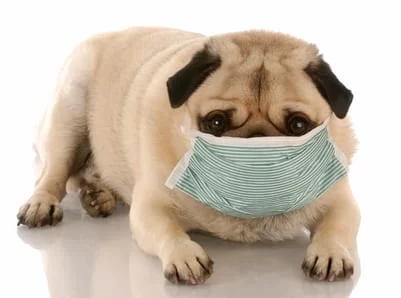How to Treat Your Pet’s Seasonal Allergies: A Complete Guide for Pet Owners
- Understanding Seasonal Allergies in Pets
- Common Symptoms of Seasonal Allergies in Pets
- What Causes Seasonal Allergies in Pets?
- Treatment Options for Your Pet’s Allergies
- Natural Remedies for Seasonal Allergies in Pets
- When to See a Veterinarian for Your Pet’s Allergies
- Why Choose Hidden Brook Veterinary for Allergy Care
Understanding Seasonal Allergies in Pets
Seasonal allergies in pets are similar to the hay fever many humans experience during the spring and fall. These allergies are typically caused by environmental allergens such as pollen, mold, or dust mites. Pets can be allergic to these substances, leading to a variety of symptoms that can make them uncomfortable.
While pets are not as likely to develop seasonal allergies as humans, the increasing prevalence of allergens in the environment has made this issue more common. Understanding your pet’s allergies can help you take the necessary steps to alleviate their discomfort.
Common Symptoms of Seasonal Allergies in Pets
If your pet is suffering from seasonal allergies, they may display a range of symptoms. Recognizing these signs early can help you seek treatment before the condition worsens.
1. Excessive Scratching and Itching
One of the most common signs of allergies in pets is constant scratching or itching. Pets may scratch at their ears, paws, or face as a reaction to the allergens affecting their skin.
2. Runny Eyes and Nose
Just like humans, pets may experience watery eyes or a runny nose when exposed to allergens. This can lead to more severe discomfort and irritation.
3. Sneezing or Coughing
If your pet is sneezing or coughing frequently during certain seasons, it may be due to allergies. These respiratory issues are a result of inhaling pollen, dust, or mold spores.
4. Hot Spots and Skin Infections
Pets may develop hot spots, which are areas of irritated, inflamed skin that are prone to infection. These are often caused by constant licking and scratching in response to allergic reactions.
What Causes Seasonal Allergies in Pets?
Seasonal allergies in pets are triggered by allergens that are present in the environment during certain times of the year. These allergens include:
1. Pollen
Pollen from trees, grasses, and flowers is one of the most common culprits of seasonal allergies in pets. As the wind carries pollen particles through the air, they can settle on your pet’s skin or be inhaled into their respiratory system.
2. Mold Spores
Mold growth, especially during wet seasons, releases spores that can trigger allergic reactions in pets. These spores can be found both indoors and outdoors, particularly in damp areas.
3. Dust Mites
Dust mites are microscopic organisms that thrive in warm, humid environments. While dust mites are present year-round, they may become more active during certain seasons, exacerbating allergy symptoms in sensitive pets.
Treatment Options for Your Pet’s Allergies
Treating your pet’s seasonal allergies involves several options, depending on the severity of their symptoms. Here are the most common treatments:
1. Antihistamines
Antihistamines are often used to control allergic reactions by blocking histamine, a chemical produced by the body during an allergic response. Your vet may recommend an over-the-counter or prescription antihistamine for your pet.
2. Steroid Injections or Medication
For pets with more severe allergic reactions, steroids can be prescribed to reduce inflammation and itching. Steroids are typically administered via injection or oral medication and are effective in managing symptoms.
3. Allergy Shots
Allergy shots (immunotherapy) are designed to desensitize your pet to specific allergens. Over time, these shots help reduce your pet’s allergic response, offering long-term relief.
4. Topical Treatments
For pets suffering from skin irritation, topical treatments such as medicated shampoos or ointments can help alleviate itching and inflammation. These treatments can provide quick relief while you address the underlying cause of the allergies.
Natural Remedies for Seasonal Allergies in Pets
If you prefer to treat your pet’s allergies with natural remedies, there are several options you can try. Keep in mind that while these remedies can help alleviate symptoms, it’s always a good idea to consult your vet before trying them.
1. Regular Baths
Bathing your pet regularly during allergy season can help remove allergens such as pollen from their skin and coat. Use a gentle, hypoallergenic pet shampoo to avoid further irritation.
2. Omega-3 Fatty Acids
Adding omega-3 fatty acids to your pet’s diet can help improve their skin health and reduce inflammation. These fatty acids are found in fish oil supplements and can be added to your pet’s food to support their immune system.
3. Probiotics
Probiotics can help improve your pet’s gut health, which plays a crucial role in their immune function. A healthy digestive system may help reduce the severity of allergic reactions.
When to See a Veterinarian for Your Pet’s Allergies
If your pet’s symptoms persist or worsen despite treatment, it’s important to consult a veterinarian. A vet can help determine the underlying cause of your pet’s allergies and may recommend a more targeted treatment plan, such as allergy testing or specialized medications.
Additionally, if your pet develops secondary infections due to constant scratching or licking, a veterinarian can prescribe antibiotics or other medications to treat these conditions.
Is your pet suffering from seasonal allergies? Take action now to help them feel better. Click here to schedule your pet’s consultation with Hidden Brook Veterinary!












